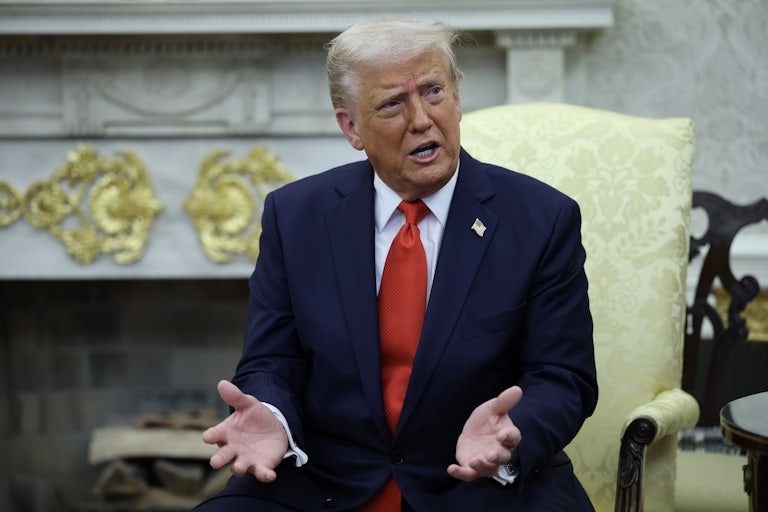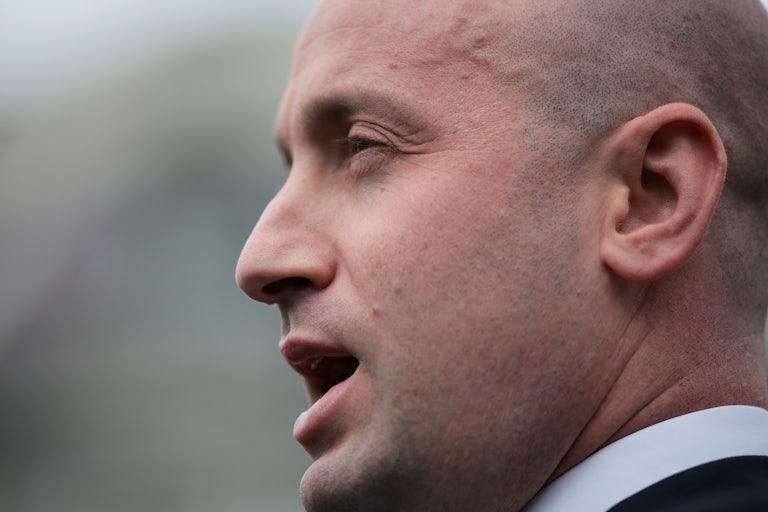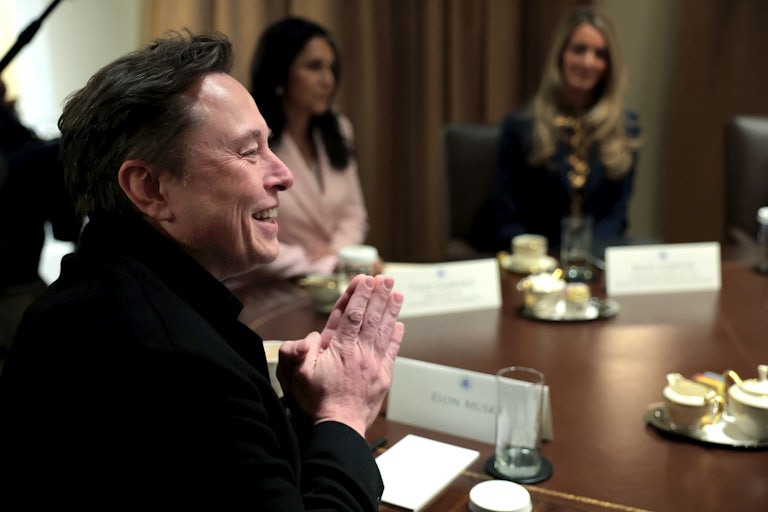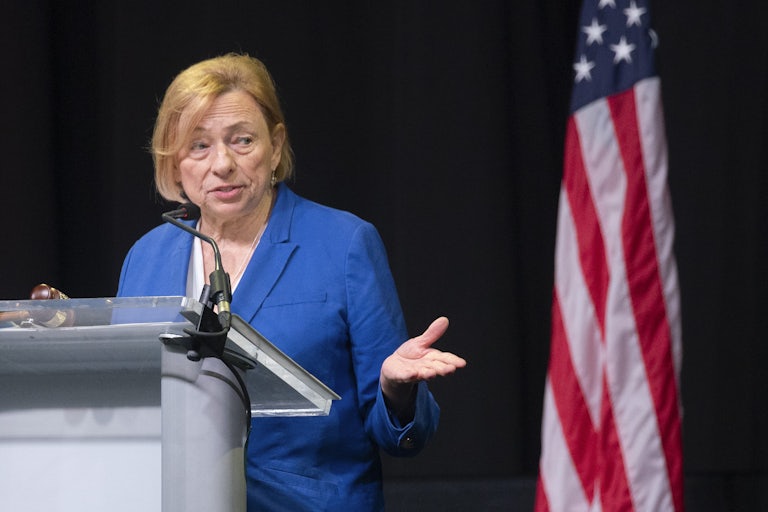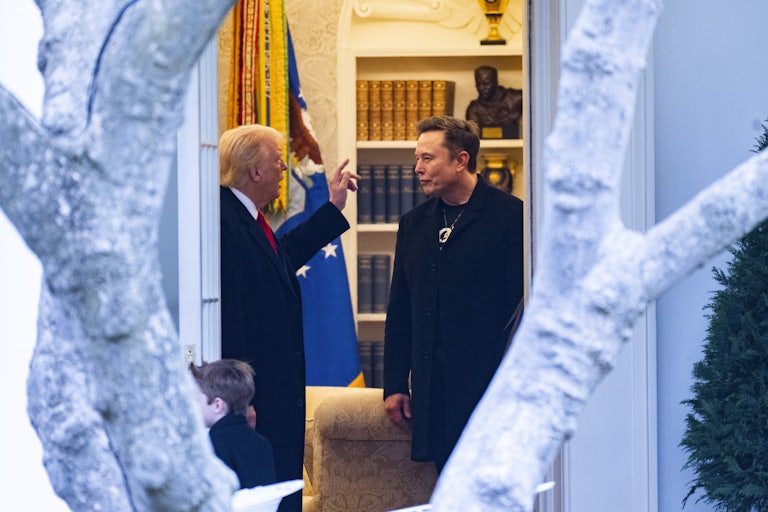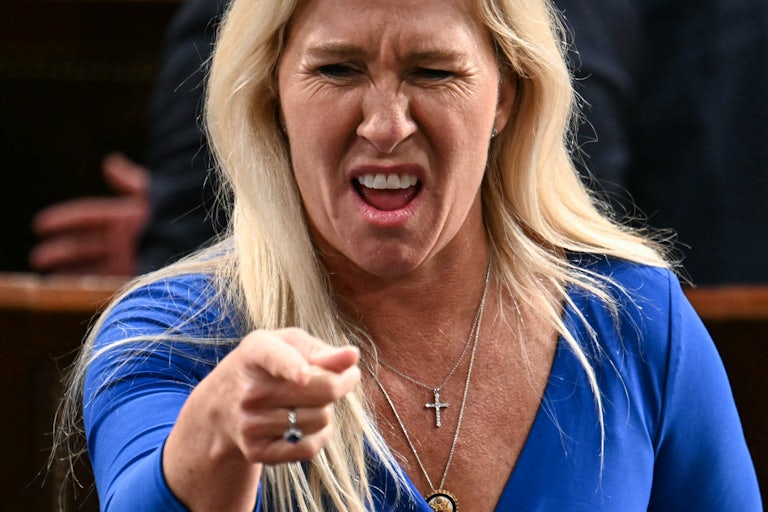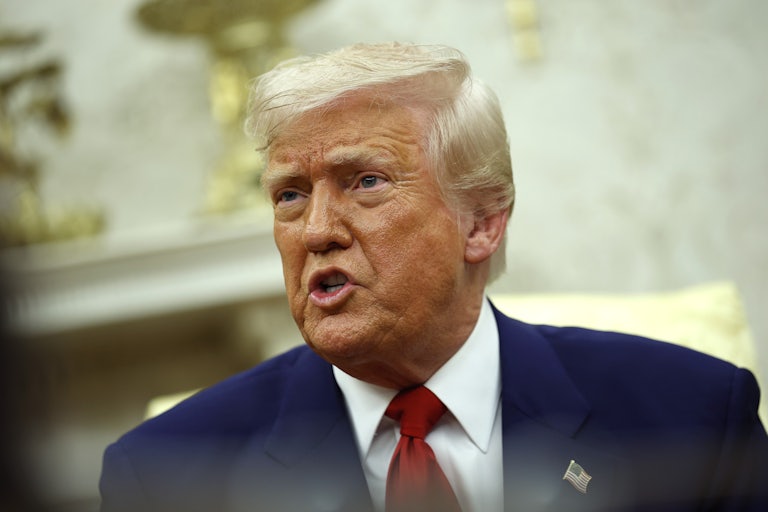Fed Chair Issues Grim Warning About Consequences of Trump’s Tariffs
Jerome Powell didn’t hold back when discussing Donald Trump’s tariffs.
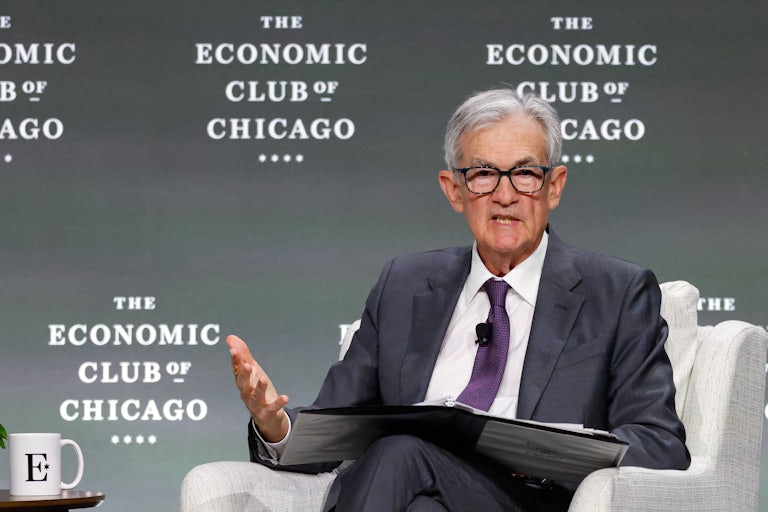
Federal Reserve Chair Jerome Powell warned Wednesday that Donald Trump’s sweeping reciprocal tariff policy would likely raise inflation, despite the president’s many promises to lower prices upon entering office.
“The level of tariff increases announced so far is significantly larger than anticipated, and the same is likely to be true of the economic effects, which will include higher inflation and slower growth,” Powell said during an event hosted by the Economic Club of Chicago.
Powell’s words stand in marked contrast to Trump’s. During a press conference with Salvadoran President Nayib Bukele Monday, Trump claimed that he had “already solved inflation,” after the inflation rate had reached 2.4 percent in March, a six-month low.
“You know, if you look at the numbers, the numbers are incredible, actually. The stock market’s up,” Trump said. But that was only after he sent the stock market sinking with his announcement of blanket 10 percent tariffs on products from nearly every country in the world.
And that was in addition to the 25 percent tariffs he’d already announced on products from Canada and Mexico, as well as 25 percent tariffs on imported cars and autoparts. Not to mention his mounting trade war with China, which involved a 145 percent tariff on Chinese goods—with a temporary exception for electronics—that saddled the U.S. with a reciprocal 125 percent tariff on American exports to China.
When Trump announced a 90-day pause on his sweeping reciprocal tariffs, the stock market immediately shot back up, making millions for the president’s buddies at the expense of weakening the U.S. dollar and the U.S. Treasury market.
Powell warned that Trump’s economic policies were pushing the U.S. into uncharted territory. “There isn’t a modern experience for how to think about this,” Powell said Wednesday.
He added that the Federal Reserve might find itself “in the challenging scenario in which our dual-mandate goals are in tension,” referring to the central bank’s dual mandate of maximum employment and stable prices.
Powell said that if both prices and unemployment increased to a certain point, then the Fed “would consider how far the economy is from each goal, and the potentially different time horizons over which those respective gaps would be anticipated to close.”

